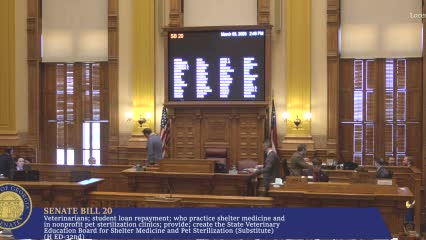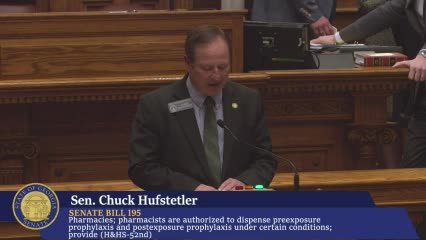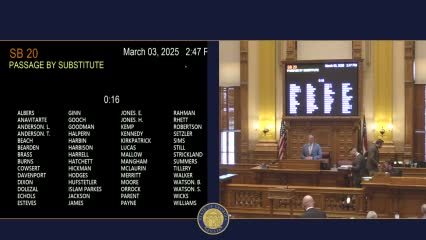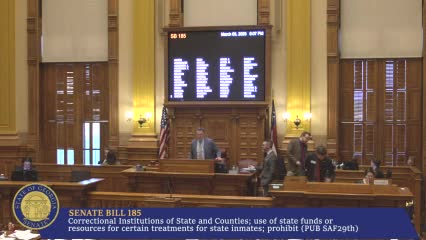Article not found
This article is no longer available. But don't worry—we've gathered other articles that discuss the same topic.

Votes at a glance: key outcomes from the March 3, 2025 Georgia Senate session

Senate passes 'Dignity Pay' bill to phase out subminimum wages for workers with disabilities

Senate backs law to collect DNA at booking for certain felony arrests after amendments

Senate approves bill narrowing library exemption from 'harmful to minors' law amid free‑speech concerns

Senate approves measure restricting use of state funds for transgender medical treatments for inmates

